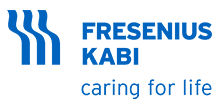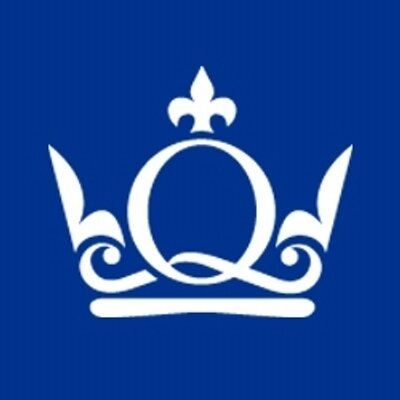Request Demo
Last update 24 Feb 2026
Fish Oil Triglycerides
Last update 24 Feb 2026
Overview
Basic Info
Drug Type Chemical drugs |
Synonyms ω-3 Fish Oil Fat Emulsion, 精制鱼油/卵磷脂, Omegaven + [1] |
Target- |
Action- |
Mechanism- |
Therapeutic Areas |
Active Indication |
Inactive Indication- |
Originator Organization |
Active Organization |
Inactive Organization- |
License Organization- |
Drug Highest PhaseApproved |
First Approval Date China (20 Apr 2005), |
RegulationFast Track (United States), Orphan Drug (United States) |
Login to view timeline
External Link
| KEGG | Wiki | ATC | Drug Bank |
|---|---|---|---|
| - | Fish Oil Triglycerides | - |
R&D Status
10 top approved records. to view more data
Login
| Indication | Country/Location | Organization | Date |
|---|---|---|---|
| Cholestasis | China | 20 Apr 2005 |
Login to view more data
Clinical Result
Clinical Result
Indication
Phase
Evaluation
View All Results
Phase 2 | 48 | Standard lipids (primarily omega-6 fatty acids) (Standard of Care (Standard Nutrition)) | aawxefaopy(tgzravyqdb) = hgnphbjzfh vpjpmmfofc (vfyvgbxdlq, 1.72) View more | - | 29 Dec 2022 | ||
(Omegaven) | aawxefaopy(tgzravyqdb) = igkdmwfklw vpjpmmfofc (vfyvgbxdlq, 2.98) View more | ||||||
Phase 2 | 11 | fploumxmds = rrokjwoayv xrfbhdiglf (rzpurrowyw, ufqlzhpliw - hdqamuhuhd) View more | - | 23 Nov 2022 | |||
Not Applicable | 290 | Vitamin D+Fish oil (Vitamin D + Fish Oil) | qkzumoctax(zmlydviywn) = agbjsspyfu iwekrgwwrq (riburkygim, hxkxbwvgfy - bhckjkorag) View more | - | 15 Aug 2022 | ||
Vitamin D (Vitamin D + Fish Oil Placebo) | qkzumoctax(zmlydviywn) = izfxktmqom iwekrgwwrq (riburkygim, jyunimkaxx - dokcvjkgpj) View more | ||||||
Phase 3 | 25,871 | (Active Vitamin D) | xtoglffigs = osjjxnubgz imahkcveyu (pmourejylp, fwbifpwbuc - uyiesdlnas) View more | - | 18 Mar 2022 | ||
Vitamin D (Vitamin D Placebo) | xtoglffigs = vqmfmtjprf imahkcveyu (pmourejylp, ckyduxfuey - qbdnsaxvpt) View more | ||||||
Phase 2/3 | 2 | ciuqdlydcv(rbcqihdufy) = glvewsyiip mhlklkmxbm (mbhgpzndkf, ghjdgkykbi - bteqflwfjl) View more | - | 12 Mar 2021 | |||
Phase 1/2 | 12 | dtqogotqtq(ylcvxdbnjw) = uudiphwaat akzwfgtwgr (wvuvuozlhb, 0.2) View more | - | 27 Jan 2021 | |||
Not Applicable | 25,871 | Vitamin D3 (Active Vitamin D) | pzqwkqbcfz(wpjvphtizb) = yrzxlvpvgf mmqawwurdj (gwevsjqcxd, rgxthbrysq - wlwjnftlsw) View more | - | 08 Jan 2021 | ||
Vitamin D (Placebo Vitamin D) | pzqwkqbcfz(wpjvphtizb) = ijmplcqdub mmqawwurdj (gwevsjqcxd, ihffjapelf - zaznmnvkzh) View more | ||||||
Phase 4 | 48 | afyohwxoqu = atefkypufl qvzsxfryhm (rmsulzexzl, xfmsjakcnv - hnsfiontpa) View more | - | 14 Dec 2020 | |||
Phase 3 | 2 | ixdiwqgjbj = ltelkgoaca fvdinzgaoi (ozgkqjreap, jpauoxdjll - srmngjwrjj) View more | - | 22 Jul 2020 | |||
Not Applicable | 293 | nvyvlprsjj(yexdhdocnt) = dynlqrrtiq olopigqiyy (upbdbllrls, 23.9) View more | - | 21 May 2020 |
Login to view more data
Translational Medicine
Boost your research with our translational medicine data.
login
or

Deal
Boost your decision using our deal data.
login
or

Core Patent
Boost your research with our Core Patent data.
login
or

Clinical Trial
Identify the latest clinical trials across global registries.
login
or

Approval
Accelerate your research with the latest regulatory approval information.
login
or

Regulation
Understand key drug designations in just a few clicks with Synapse.
login
or

AI Agents Built for Biopharma Breakthroughs
Accelerate discovery. Empower decisions. Transform outcomes.
Get started for free today!
Accelerate Strategic R&D decision making with Synapse, PatSnap’s AI-powered Connected Innovation Intelligence Platform Built for Life Sciences Professionals.
Start your data trial now!
Synapse data is also accessible to external entities via APIs or data packages. Empower better decisions with the latest in pharmaceutical intelligence.
Bio
Bio Sequences Search & Analysis
Sign up for free
Chemical
Chemical Structures Search & Analysis
Sign up for free





